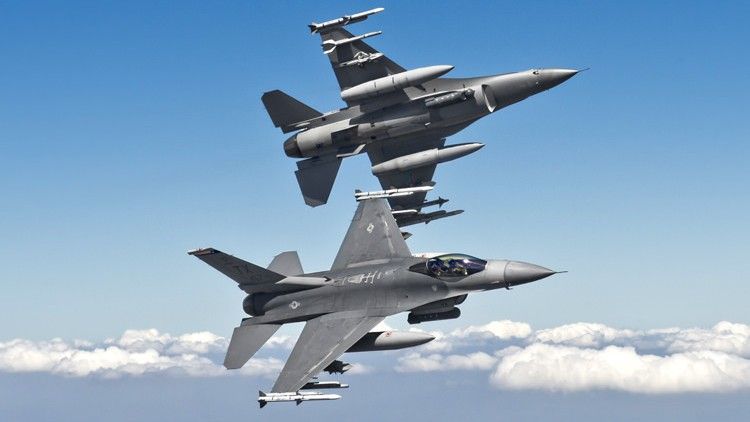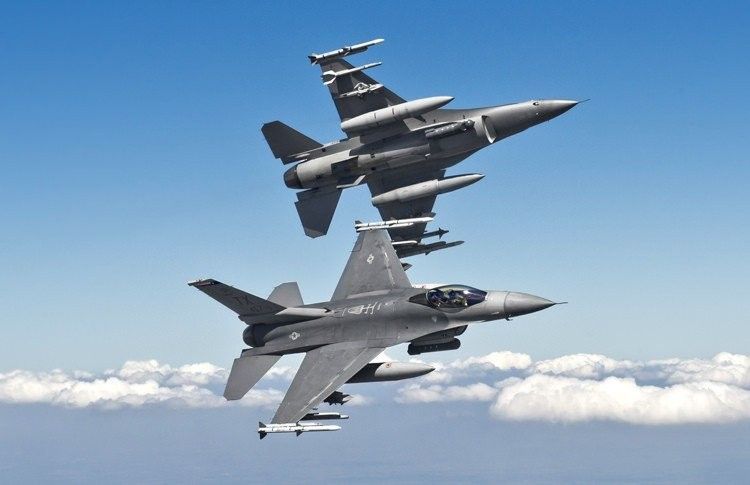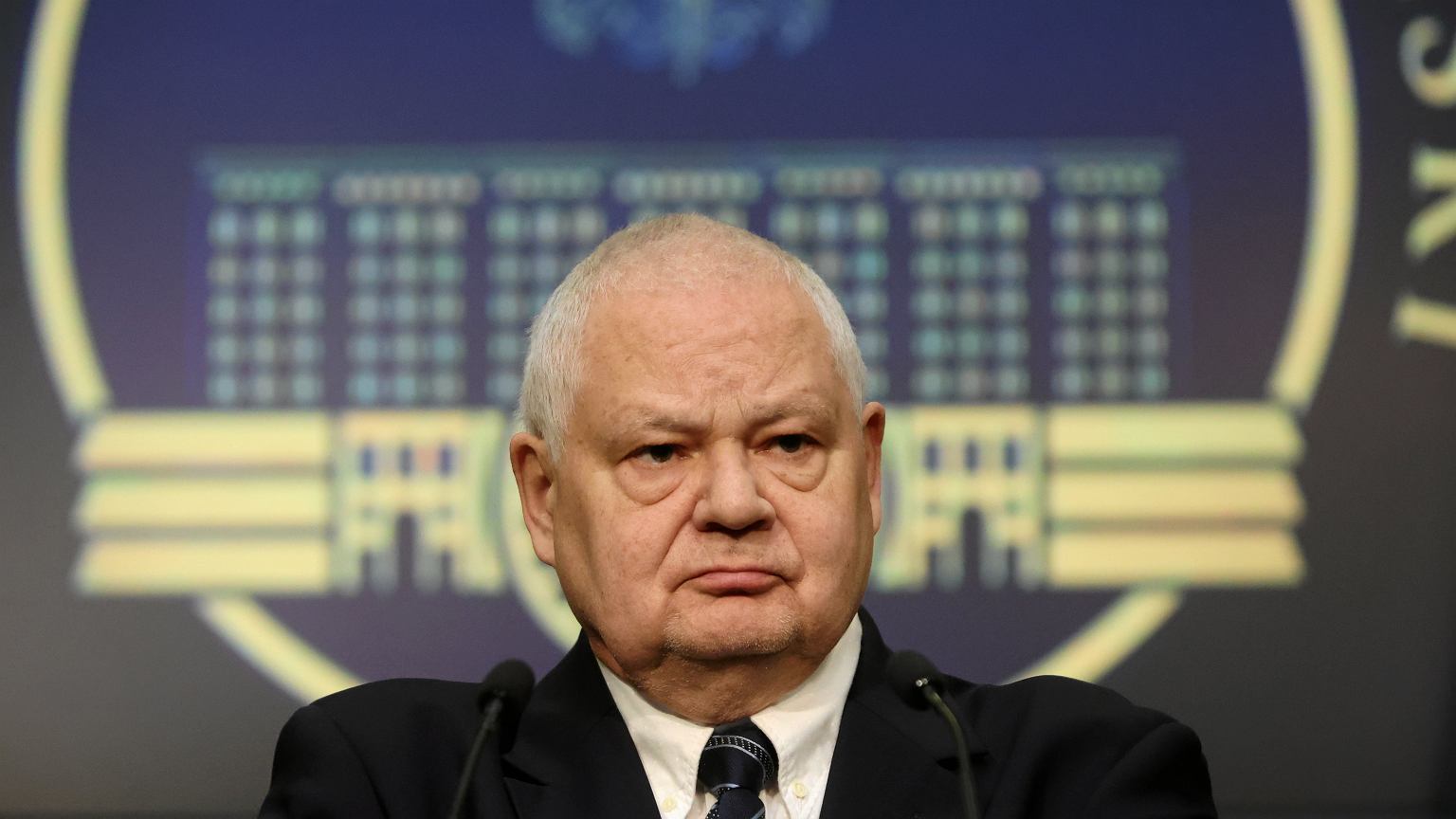
How does Lockheed Martin plan to reshape its cooperation with its partners in international markets and how does it plan to develop it in the face of the worsening international situation? Interview with Michael Williamson, President, Lockheed Martin International.
Poland plans to purchase two more combat squadrons in the near future. Is Lockheed Martin afraid of competition here, or are you confident that you will sell the F-35, or at least the F-16?
We never feel confident and are not satisfied with what we have achieved. We try to make sure we explain why our planes are the best. When we look at the F-35, that is, the fifth generation aircraft, we can see that there is nothing comparable in the market. We will support and respect each customer’s decision, but if we compare the machines themselves, and their capabilities, it is simply obvious. Our challenge is just whether we meet the deadlines and every day we do everything to make it work.
For example, Eurofighter offers Poland long-distance cooperation. Can you also make suggestions here? In Germany, some production was transferred to their industry due to the choice of the F-35 …
We do not control these things. This is controlled by the relevant software offices who monitor what and how is distributed. If the Eurofighter proposes an aircraft that is not of the same quality, but gives industrial participation in return, the Polish nation must decide whether it wants it.

Michael Williamson, President, Lockheed Martin International
picture. Lockheed Martin
Given the worsening situation in the world and the increase in orders, will Lockheed Martin increase the planned production of the F-35 to more than 160 per year?
I was at an F-35 production facility in Japan. We looked at how to increase production efficiency there. They have six stations, each of which can operate one F-35 at a time. But they plan to shorten the time at each of these stops – by 10-15 percent. This will speed up delivery without building a new factory. The goal is therefore maximum efficiency, which will increase the speed of delivery. Of course, the investment that involves setting up new factories is also possible, but this is a long-term process.
Lockheed Martin is currently investing in the development of artificial intelligence. It is now a popular topic, especially in the context of potential threats. Aren’t you afraid that it is a dangerous unproven technology?
No, I’m not afraid. We want to use AI in the right areas, i.e. to analyze the huge amount of information coming from the sensors. Today we have already created such programs that we want to reduce this time even more. Therefore, artificial intelligence is not entirely new and has been operating in Poland for a long time. They help the man to understand the situation, it is not a matter of complete independence in making decisions by machines. To do these things faster and better.
What opportunities does Lockheed Martin see in the current international situation in the world?
In our company, we build really good systems. Looking at our four main business areas: Missiles, Aerospace, Helicopters and Airplanes, you can say that we offer the best solutions in the world in each of these areas. Whether we look at the HIMARS missile artillery or the F-35 fighter jet.
We are a technology company that solves the problems our customers face. We are currently trying to get their systems to work better with each other. So 1 + 1 for them equals 3. In short, it is about achieving a synergistic effect. That’s why we’ve recently started focusing on multi-domain operations and offering integrated solutions.
With this incredible array of sensors on the F-35, you have to take advantage of the fact that this aircraft is flying over the battlefield, and at the same time we have integrated air defense systems and long range artillery. Why not pair up when I can extend my firing range but also speed up information processing time by reducing the time from detection to target destruction? This is a strength multiplier for our customers and we are making a lot of effort in this direction.
What about the challenges?
During the COVID-19 pandemic, there have been problems, for example, with some parts and production of the F-35. Many items produced in the USA in one location. We are now working on distributing the base not only to suppliers, but also to production. It won’t happen overnight, but we need to rethink our path and take advantage of the opportunities that arise.
Until now, Lockheed Martin was an American company selling to individual export customers. When I took up my current position half a year ago, I asked how we can increase production by developing partnerships with companies from the countries we sell to? How do you invest in local universities, and help train people to do design and production? In short: How do we become more integrated with the defense industries of our client countries?
Do you also think of Poland and its industry in this context?
Yes and more than considered. You are rather pioneer in many cases and Poland has a large skilled workforce. We already do a lot of work on helicopters and planes in Poland at our facilities. The Polish chassis is currently being integrated with surface-to-air missile launchers.
We are currently looking for opportunities to expand our supplier base in Poland. We are looking for additional companies to invest. Not only will this help develop capabilities for Poland itself, but I believe parts and works from Poland can be used elsewhere in the world. All this will be a joint benefit of Lockheed Martin and Poland.
How has the war in Ukraine directly affected your work?
We consider deterrence our business. We deliver our products to countries that are so good that they stop people from making bad choices. And create a situation like the current one in Ukraine. Today we are glad that the systems we built turned out to be as valuable as we assumed.
And when it comes to emerging requirements in terms of production volume?
Our production needed to be ramped up. The good news is that we quickly showed that we can double it.
Are we talking about ammunition?
Yes, but not only. It was also about the speed of production of the F-35, F-16 and not only HIMARS missiles, but also bombers. So we accelerated not only in terms of ammunition, but also in terms of platforms.
I confirm that we achieved all this right after the COVID-19 pandemic, when it became clear that the sub-supplier network was very vulnerable to this type of phenomenon. It should be remembered that some of our sub-suppliers are companies that employ 6-8 people. And when the epidemic hit, it affected them. All this means that during the pandemic we have fulfilled our obligations, but at the expense of the accumulated stock of parts. Now we have to supply more of our products than before because of the war, but at the same time we also want to rebuild our stock of spare parts. So my job now is to have hundreds of sub-suppliers, a flexible supply system, and the ability to rebuild inventory.
Is it about backup providers, backups?
I don’t know if to say they are supposed to be a backup supplier. even more. In order not to count on, say, one firm, but, for example, to count on six in a given case. If one has problems, I’ll go to the other. It’s about flexibility. As well as the presence of these suppliers in various locations around the world. In the event of war or, say, a natural disaster.
With our 180,000 dedicated employees, we’ve found a way, despite all the odds, to equip fighters with the right capabilities. We continue to build a more flexible supply chain, and I want to be a partner in the Polish defense industry, and this is my goal now.
Thank you for the conversation.

Echo Richards embodies a personality that is a delightful contradiction: a humble musicaholic who never brags about her expansive knowledge of both classic and contemporary tunes. Infuriatingly modest, one would never know from a mere conversation how deeply entrenched she is in the world of music. This passion seamlessly translates into her problem-solving skills, with Echo often drawing inspiration from melodies and rhythms. A voracious reader, she dives deep into literature, using stories to influence her own hardcore writing. Her spirited advocacy for alcohol isn’t about mere indulgence, but about celebrating life’s poignant moments.








